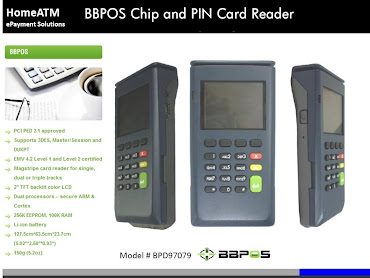Credit card transactions benefit both merchant and customer
Going shopping these days, whether for a new TV or a mid-day snack, isa lot simpler and faster than it used to be. No need to fumble throughyour pockets, looking for change, or search for an ATM when low oncash. It's not often that we're stuck in line behind someone writingout a check. No need to load up on cash when traveling. Now, we justpull out a card, swipe it or tap it, grab the purchase and go. It'squick and easy. And, best of all, consumers win and merchants win.
But that win-win proposition is being threatened by a group ofmerchants who have decided that they don't like the current arrangementwhere you get to choose how you pay for the things that are importantto you. These big retailers are lobbying Congress to change the rules,and you could end up paying their bills. Merchants benefit when youmake purchases at their shops, but should they tell you how to pay?
The success of a merchant such as 7-Eleven comes from offeringconsumers choice and convenience. For 7-Eleven, the drive for consumerconvenience led to them becoming one of the first to adopt aninnovative way for you to pay, MasterCard's tap-and-go technologyPayPass, where you pay with a key fob or, soon, your mobile phone. Noneed to even sign a receipt.
When 7-Eleven jumped on the contactless bandwagon in 2006, a companyexecutive said that PayPass "... enhances our customers' shoppingexperience by offering speed and convenience when paying at 7-Eleven."The company also acknowledged that paying with technology has a cost,as another executive said at that time: "The expense can be worthwhile,because the average 7-Eleven card transaction is 20 percent to 25percent larger than a cash one, and there are fewer security-relatedcosts to accepting cards."
The bottom line is that it's a good deal for a merchant like 7-Elevento accept payments from consumers on cards. MasterCard and otherpayments networks continue innovating, bringing new convenience forconsumers, while 7-Eleven's sales grow and their franchises expandglobally. Sounds like the small cost merchants pay to accept a paymentcard is more like a smart investment, rather than a fee.
But while merchants, including 7-Eleven and stores like it, profit fromthe convenience of payment cards, they are working hard behind thescenes with a glossy multi-million dollar campaign in Washington topush for a new law that would shift the fees for using a card ontoconsumers while merchants keep the benefits, and the profits. But don'ttake my word for it — ask 7-Eleven. In a recent New York Times article,Long Island 7-Eleven franchisee owner Patricia Orzano said that thecredit card fees cut into her profit. It was a rare moment when honestycut through the rhetoric.
No matter how loudly the merchants claim the mantle of "Protector ofConsumer Interests" on the fee issue, the unintended consequences wouldbe a triple whammy on consumers: less convenience, higher costs andreduced consumer choice.
How do I know? Because we know what happened in Australia, where thegovernment mandated card acceptance fees. Rather than passing along thesavings to their customers, merchants pocketed the funds.
We know for sure that consumers there now are paying much higher ratesto use their cards and receiving fewer benefits, while there is noevidence merchants reduced any prices. Cutting acceptance fees was aboon for merchants, but it harmed consumers. There's little reason toexpect the outcome would be different here. Many in Congress are askingwhy merchants are looking for legislation that does nothing to protectthe interests of the consumer.
The bottom line is this: Electronic payments systems are a win-win foryou and for the merchants you visit. They increase sales and increaseconsumer satisfaction, and lawmakers should consider the full picturebefore rushing to legislate harmful price controls.
Congress should act in the best interests of consumers by rejecting the merchants' anti-competitive legislation.










0 comments